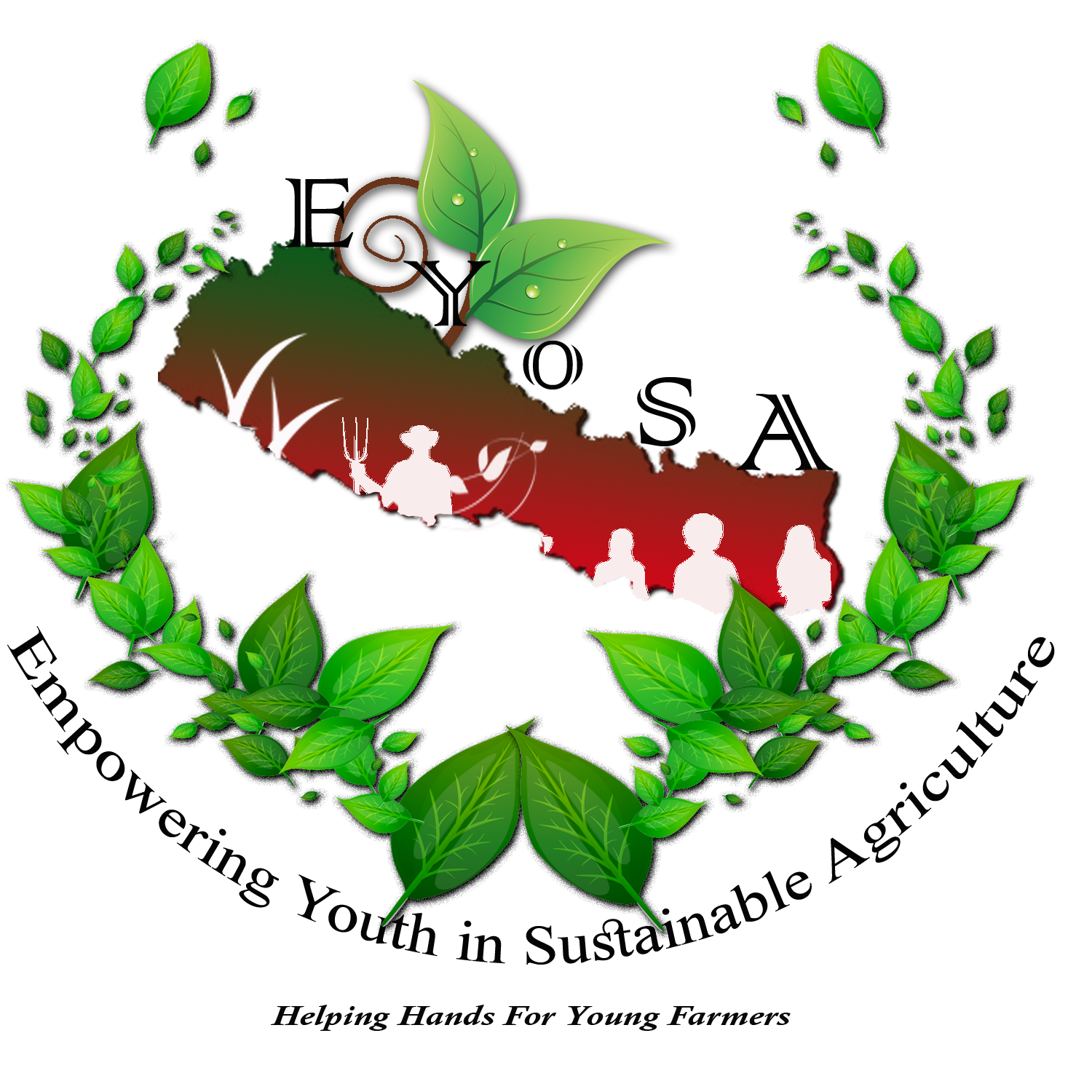WAY FORWARD FOR NEPALESE AGRICULTURE:INNOVATION, ENTREPRENEURSHIP AND SUSTAINABILITY.
- EYoSA

- Sep 1, 2019
- 3 min read

Photo source: Google
Around 30 million people live in Nepal according to the census of Nepal 2011among which 66% of population is involved in agriculture. Literally it means 66% of people are farmer. Population density of Nepal is 201 people per km2. Mathematically, there are 133 farmer out of 201 people living in 1km2and 68 people are left out not producing anything. The present situation reflect, most of these 133 farmer living in 1km2 do not produce sufficient for their consumption and additionally require extra food for consumption. Summing up the deficit food of farmers and those 68 people, all this needs to be imported from neighbouring nations. As a result, Nepal is importing large amount of cereals, pulses, oilseed and several other agriculture products. This condition has resulted in the dependency of Nepal to other nations and inviting a danger of food insecurity in near future. Population growth rate of Nepal is 1.4%. 3million people are added to the present population in every 5 years. So that in every single year 60000 people is increasing. Other things remaining the same, 39600 additional farmers also sum up to present farming population every year. Ironically, import data of most of agriculture commodity is sharply increasing. The sustainable solution to this haphazard problem is awaring this 39600 farmers about innovation which can fill the gap to traditional practices, so that they can start up with the fruitful entrepreneurship for the sustainability of agriculture which lead to the golden future of agriculture of Nepal. Some terms Innovation, Entrepreneurship and Sustainability are mentioned as way forward for Nepalese Agriculture. In present context of Nepal, we don’t have to invent and discover innovation needed for farmer; instead they are already available and only we have to do are to apply the healthy innovation in our field rationally. We have high yielding hybrid varieties of cereals, pulses, vegetable and fruits, improved irrigation practices like Drip irrigation, fertigation practices. Additionally Improved tillage equipment, soil testing practices, biological disease control practices, herbicides, integrated management practices, ICT in agriculture and different agriculture related applications are innovation to farmer. But most Nepalese relies on the traditional techniques because agriculture is not taken as entrepreneurship ie. Agriculture is still in subsistence level and subsistence farmer doesn’t take agriculture as a business which is without record of the total cost, profit and loss caused by disease, insect, weed etc. Lack of entrepreneur in agriculture sector has paused the Nepalese agriculture in subsistence level. Agriculture has to be taken as entrepreneurship by applying innovation in the field for higher production to fetch a good profit. It will be the need for sustainability if innovation and entrepreneurship are to live for long run because unsustainable use of present resource only for nice profit will lead to the future generation that are likely to suffer from malnutrition, famine and various diseases. So the sustainability practices, which goal is to meet the food and textile need of present society without compromising the ability of future generation to meet their own need should be included for prosperous farming in future. Sustainable practices like integrated pest management, integrated crop and livestock production practice, cover cropping, agro forestry models should be included for resource conservation. In near future Nepalese agriculture will face pressure for high production of food and textile, which is possible by the application of non faulty innovation in field. Application of innovations is possible if agriculture is to be done in large scale, commercially i.e. agriculture should be developed as entrepreneurship. For resource conservation and in the case that future farmer of Nepal doesn’t face problem of scarce and polluted resource, sustainability is utmost.






Comments